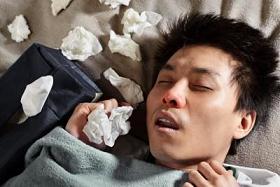Indeed, while it is well known to clinical physicians and nurses, modern official mainstream medicine cannot suggest the mechanism accountable for this phenomenon: sick people generally have worse quality of sleep. Why do people with epilepsy, diabetes, heart disease, cancer, asthma, COPD and many other health conditions have worse sleep? Furthermore, quality of sleep gets even worse with progression of health problems.
If you try to watch sleep of your relatives and friends, you can notice that their morning state and quality of health depend on one factor mainly: their breathing during sleep. When their breathing is fast and deep (noisy breathing, snoring, irregular breathing, etc.), especially through the mouth, they are in a worse health state. When their breathing is slow and relaxed, they have better or good sleep and health state. You can even measure their respiration frequency during sleep to determine their health. Furthermore, respiration of truly healthy men and women during sleep is scarcely visible or audible at all: they sleep as if they are deceased. It can be frightful, but it is a reality of life.
Before we consider effects of breath on sleep, let us look into breathing in the sick during day. Do they have unusual breath at rest? Yes, my web site has final results of tens of physiological publications that discovered that mildly ill people breathe at rest about two-three times more air than the established scientific norm. Severely or critically ill, including terminally sick and hospitalized people, breathe even harder. Terminal stages of cystic fibrosis, cancer, HIV and other health problems usually correspond to nearly 30 breaths per minute and more, instead of 12 breaths/min that is the clinical norm.
How can over-breathing influence sleep? In order to investigate this question, let us analyse effects of breathing on the nervous cells and brain.
In the first instance, miniscule normal breathing provides virtually highest possible oxygen saturation for the arterial blood: (roughly 97 percent). Hence, ifpeople breathe more, we cannot enhance oxygenation of the arterial blood, but we instantaneously lower CO2 (carbon dioxide) concentration in the bronchi and bronchioles, lungs alveoli, arterial blood, capillaries, and all other body cells, the brain cells included.
This substance is a vasodilator. Hence, chronic hyperventilation produces constriction of blood vessels. This is the main parameter that eliucidates why we can easily faint or pass out after around three minutes of forceful or deliberate hyperventilation: less oxygen and glucose is delivered to the brain.
Carbon dioxide is also irreplaceable for delivery of oxygen to cells. This law of the respiratory physiology is known as the Bohr effect: decreased carbon dioxide level decreases O2 proportion in cells. Really, large numbers of research articles have clearly shown that chronic over-breathing DECREASES oxygenation of tissues. Simultaneously, virtually all health conditions are based on low oxygenation of tissues.
Moreover, carbon dioxide is an efficient sedative and tranquilizer of the nerve cells in the brain. Neurological medical publications have demonstrated that lack of carbon dioxide leads to abnormal excitability of brain. As a result, our deep and heavy respiratory pattern results in more problems with sleep in many, but not all individuals.Headaches, chest pain, breathlessness or dyspnea, heart palpitations, and many other symptoms of hyperventilation are very common during sleep too.
Finally, it is clear that, if someone gets rid of his hyperventilation, he will be free from his diseases and sleep problems as well.
Resources
Hyperventilation Causes Heart Disease - Tens of medical studies testify that all heart disease patients are heavy breathers
Exertional Headache After Exercise - It is usually caused by mouth breathing during exercise
Breath Holding Test Reflects Dyspnea - Knol from Google.com
www.NormalBreathing.com has 100's of medical references, numerous tables, graphs, quotes, charts, results of published clinical trials, analysis of several respiratory techniques, free Buteyko breathing exercises, manuals, techniques, lifestyle modules and other resources for better body and cell oxygenation and health.








